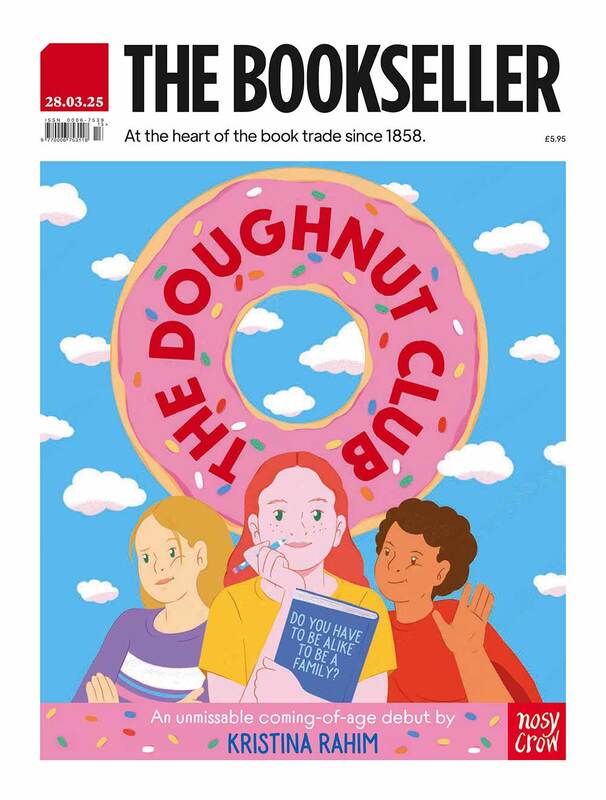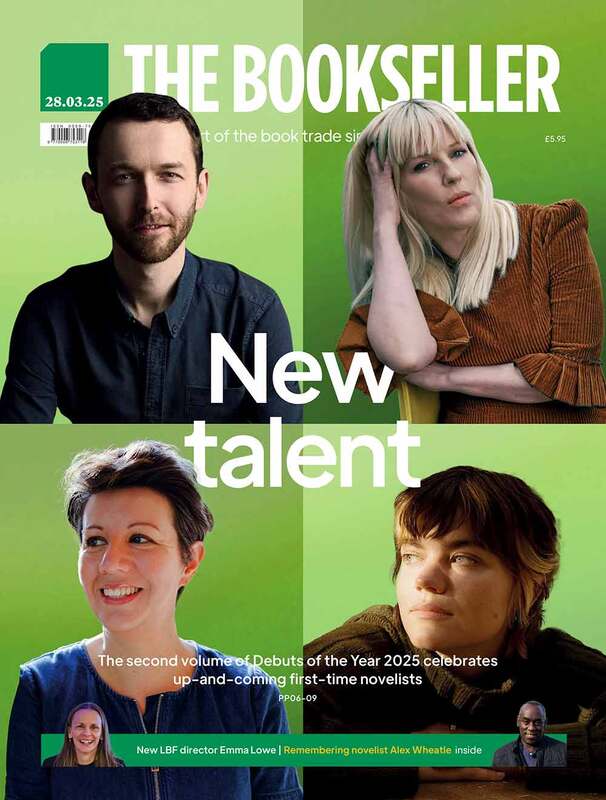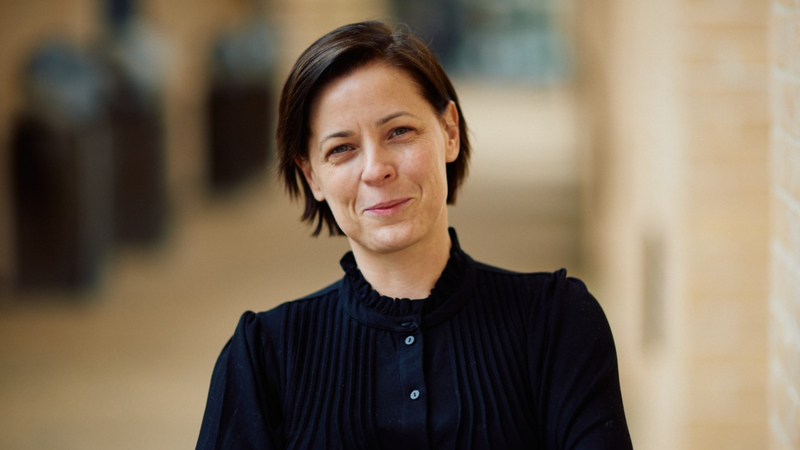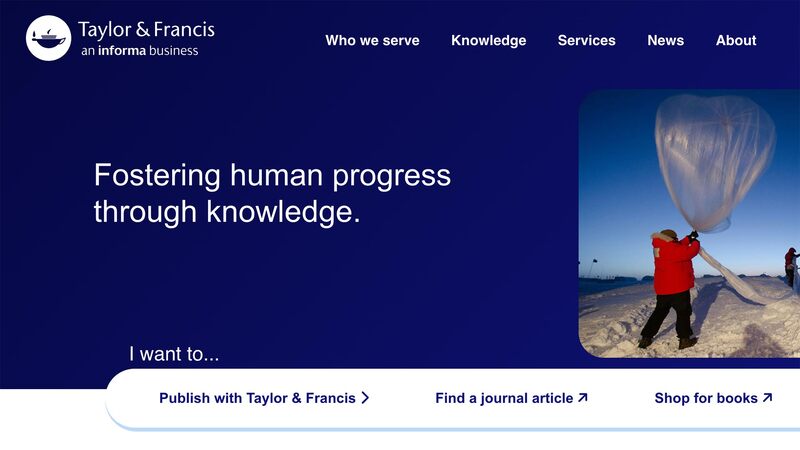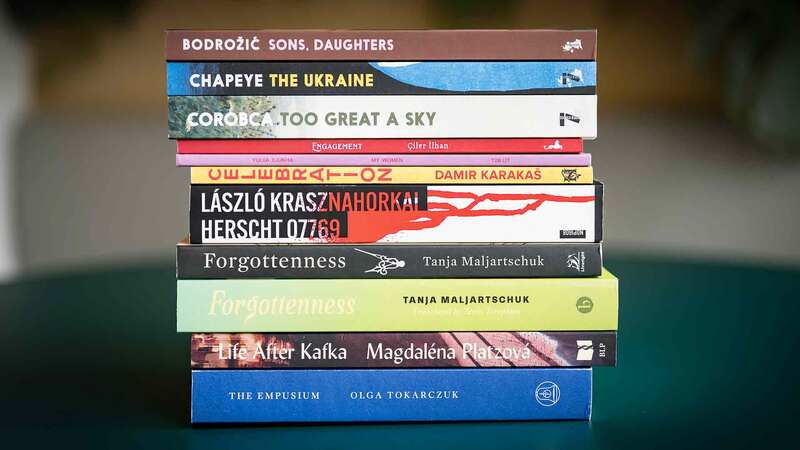You are viewing your 1 free article this month. Login to read more articles.
Publishers warn of increasing visa trouble for authors
Publishers have spoken out about the increasing problems of authors getting visas for international travel—both when coming to the UK and when making certain trips overseas—with some saying it now affects their decision whether or not to make an offer for a book.
Comma Press said the rise in visa blocking amounts to censorship with one of its authors, Hassan Blasim, recently refused a visa to India for the first time in his career. Managing editor Ra Page told The Bookseller: “It does seem to be on the rise, globally… it seems to be turning into a bit of a pattern all over the world... Border controls and consulates deciding which authors get to appear in literature festivals."
In the last two years Comma has seen four author visa applications rejected - three of them for Palestinian authors wanting to come to the UK, one Iraqi. The Iraqi filmmaker Hassan Blasim, a Comma author, was recently refused a visa to travel to India from Helsinki. Hassan was invited along with other Comma writers to attend the Mathrubhumi International Festival of Letters in Kerala, and although the other writer Comma nominated for the festival, Canadian/British author Michelle Green, apparently had no problem getting an Indian entry visa, Hassan has just been rejected, Page said.
The Bookseller was shown an email from Blasim which reads: “They were asking me very strange questions: 'Do you go to write about India?' I said no, and it was made clear more than once, that I’m not a journalist and I don’t write about India…[this is] the first time I have had such a problem like this.”
Page said: “India has such a long, rich tradition of protest and cultural dissent - such traditions are tarnished when a climate of suspicion and fear takes hold at the shop-floor of visa applications. Whatever you put it down to, directly or indirect, it has the same result: censorship. Certain writers are allowed to attend our festivals and certain writers are not.”
He suggested there could be a league table showing which countries reject artists visas most often. “Perhaps then we can embarrass certain governments into cleaning up their acts,” he said.
Saqi Books also said visa issues are increasing. “Increasingly, we’re having to discuss potential visa issues for overseas authors at the offer stage for a book,” Elizabeth Briggs, editor and marketing manager at Saqi, told The Bookseller. “I was recently even sent the passport of an author to ask whether we could help secure him a visa – how can we make any such promises? Author tours on our lead titles are an important part of our publicity plans, and if we can’t have authors visit us then it can determine whether or not we publish a book."
She added: “Conversely, one of our British Palestinian authors is currently stuck in Gaza as the border is closed, so we are experiencing problems both ways. Whatever policies are in place are not working, with repercussions for the individuals involved, and for both the cultural scene in the UK and Britain’s reputation on the world stage.”
Tiny Owl co-founder Delaram Ghanimifard said the publisher has now scaled back its plans to invite international authors to the UK because of visa bureaucracy. Tiny Owl endured a long battle with the authorities over allowing illustrator Ehsan Abdollahi into Britain in 2017, with the Home Office eventually doing a u-turn on its visa refusal, following public pressure and then encountered a similar situation last year.
“We haven't tried to get any authors here after August 2018”, Ghanimifard told The Bookseller. “We had decisions on visas for Ehsan Abdollahi and Marjan Vafaeian delayed until the last minute back in August for Edinburgh Book Festival, but thankfully they both got their visas eventually and could attend the festival. We find it too stressful for the authors, us, and the event organisers to get authors here from countries that need visas.
“Unfortunately this has made us limit our plans to invite them. This doesn't mean we won't have authors visit from abroad in the future, but we have to consider each event very carefully, so that we don't waste the authors' and our time and make life stressful for them for a short visit.”
She added: “Visa rejections for authors are like cultural rejections. Usually when something like this happens to an artist or author, it humiliates the author's country as well, and they feel they need to retaliate. And we end up with closed doors everywhere.”
English Pen's director Antonia Byatt told The Bookseller: "We are concerned at the moment because the environment here is more hostile and there are plenty of examples of writers who have not got visas recently. It is a pretty complex system too; having said that we did just get an artist’s visa signed off without problem.
"Writers’ freedom of movement is incredibly important; we have a panel planned on this at LBF. With that freedom of movement, ideas and the power of literature travels across frontiers. If we put up barriers to new ideas and shared stories our nation is a poorer place."
A Home Office spokesperson told The Bookseller: “We welcome authors and other artists coming to the UK to perform, and appreciate the important contribution they make to our creative sector.
“We have launched a year-long engagement process with businesses and stakeholders on our future skills-based immigration system and we want to hear from the creative sector as part of that.
“In the meantime, there is a wide range of routes which can be used by authors coming to the UK – the visitors’ route, which includes those performing at permit free festivals; the Permitted Paid Engagement route for those coming for a short period; and the temporary work route for those coming for longer.”
The Immigration Rules set out the requirements to visit the UK, usually for up to six months.

